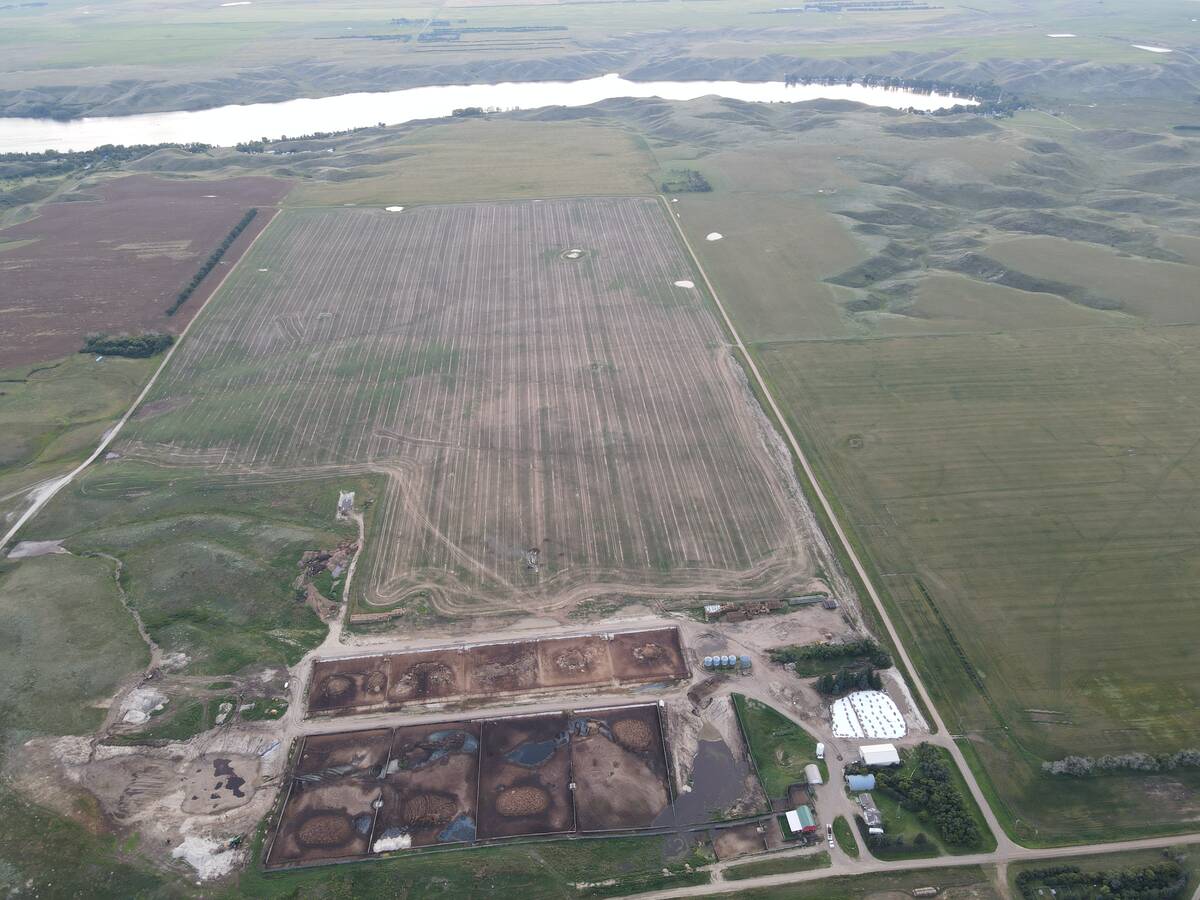The National Energy Board can impose a fine with no mechanism for appeal, says association official
Farming over underground pipelines has its drawbacks. Lower yields and safety concerns are just two of them.
Individual landowners who violate certain regulations administered by the National Energy Board could be fined $250 to $25,000 per violation per day for crossing pipelines in unsafe circumstances.
If their farm is incorporated, the penalties for companies range from $1,000 to $100,000 per violation.
Dave Core, chief executive officer of the Canadian Association of Energy and Pipeline Landowners Associations (CAEPLA), takes no comfort in the fact that the NEB hasn’t fined any farmers under the system of penalties that came into effect in July 2013.
Read Also

Saskatchewan RM declines feedlot application, cites bylaws
Already facing some community pushback, a proposed 2,000-head cattle feedlot south of Swift Current, Sask., has been rejected for a municipal permit, partly over zoning concerns about the minimum distance from a residence.
“It is a real risk. Regulations are created for a reason.”
Core said many farmers aren’t aware of that risk. He objects to the threat of penalties for farmers when pipeline companies use the land at no cost.
“The NEB is not there for property owners. The NEB’s job is to facilitate pipeline construction.”
Rebecca Taylor, NEB program manager for the administrative monetary penalties (AMPs), confirmed no farmers have been fined for pipeline transgressions.
“At this point, the violations have been company violations,” said Taylor.
“Also, the board’s approach with AMPs and landowners is that AMPs are generally used as a tool of last resort or in extreme cases.
“The board would typically work with landowners if a problem was noted to try and resolve it before it even got to the point of any enforcement being warranted.”
Taylor also said the NEB has discretion on whether to impose the fine on an individual or on a company, in a case where the farm is incorporated and a violation occurs.
The system of penalties includes exemptions for crossing a pipeline right of way for farming purposes. Exemptions apply if a vehicle or implement:
- does not disturb more than 30 centimetres of topsoil;
- does not remove or add soil over buried pipe;
- has loaded axle weights and tire pressures within manufacturer approved limits;
- soil conditions are such that rutting is minimal over pipe.
The exemptions state that if any of those conditions can’t be met, the farmer must contact the pipeline company to ensure the activity can be done safely.
It’s that last proviso that concerns Core.
“It all falls back on the landowner, so the landowner is liable if he makes the wrong conclusion about crossing the pipe. That one item exempts the exemption,” he said.
Taylor said the NEB requires pipeline companies to inform landowners about pipeline location and “how landowners can keep pipelines safe,” and they are expected to do so on an ongoing basis.
Periodic audits are done to ensure that, Taylor said.
It is Core’s view that the NEB tries to make the risk of penalties seem insignificant, but because the fines are administrative, a bureaucrat can determine the amount and impose it, with no mechanism for appeal.
“Pipelines were supposed to be out of sight, out of mind. They weren’t to interfere with our farming practices. Well, now they do. Now we can be charged as criminals,” said Core.
“We can be held liable in court if we don’t have the permission, and now a land agent can report us to the board and the board can put administrative penalties on us.
“We’re not even properly compensated for the interference and we’re left with a whole bunch of liabilities.”
Anti-pipeline groups that have emerged to protest various proposed Canadian projects will likely do no favours for farmers either, added Core.
He said those groups are less about safety than about objections to fossil fuel use. CAEPLA wants new pipelines to be deeper, thicker and safer, and it wants safeguards for maintaining old and abandoned pipelines.
“What’s happening is pipeline safety is getting lost in this anti-oil movement.”
The precipitous drop in oil prices and revenues has created additional concern about safety issues related to pipeline abandonment.
Taylor said the NEB has recognized the issue and imposed a fee structure for pipeline companies so funding remains available for upkeep of abandoned lines.















